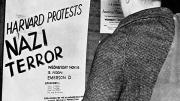Shortly after the Oklahoma City bombing in 1995, federal agents began a search for two men seen renting the van used in the attack. One of those men, Timothy McVeigh, was recently executed. The other man exists only as proof of the fallibility of human memory. To professor of psychology Daniel L. Schacter, the case of "John Doe 2" represents the classic memory error of misattribution--when someone assigns a real memory to the wrong source.
Agents eventually decided that "John Doe 2" was an innocent man who, accompanied by a friend vaguely resembling McVeigh, had rented a vehicle one day after the bomber. An eyewitness conflated two encounters into one. Affirming just how unreliable eyewitness testimony can be, a recent study analyzing 40 cases of wrongful imprisonment found that mistaken eyewitness identifications had, in part, implicated 90 percent of these innocent people.
And misattribution is just one of seven potential memory mistakes we all can make, according to Schacter's recent book, The Seven Sins of Memory. His litany of memory problems may shake one's faith in the ability to remember anything correctly, but that's not the message he hopes to send. "This should make you just a bit humble about your memory," he says. "You have to be aware of its vulnerabilities."
To write the book, Schacter, who has studied the mysteries of memory for more than two decades, culled the literature, drawing on both experimental psychology and neuroscience to provide "a new framework or a new way of looking at memory errors." Although researchers have tried to unravel how memory works, they have paid less attention to how it fails. Understanding memory's slip-ups, says Schacter, may shed light on its successes. So he divvied up the memory mistakes into seven categories, as in the classic septet of deadly sins.
Some of the "sins" are common and innocuous enough--a word or name sits on the tip of your tongue (blocking), you forget where you put your keys (absent-mindedness), or an annoying jingle dances in your head (persistence). Sometimes the details of a recent news story fade (transience), or we downgrade our recollections of a job we left for a better-paying post (bias). Other "sins" can have serious consequences, like suggestibility, in which an external source purposely or inadvertently plants a memory in someone's mind. Schacter identifies this phenomenon in cases where a therapist suggests to a patient past emotional or sexual abuse that never occurred.
In his own work, Schacter is exploring how and why misattribution occurs. In addition, he's interested in how people of different ages experience memory errors, and whether certain mistakes become more or less common with age. As research focuses more on errors of memory, Schacter concedes that the "seven sins" analogy may prove incorrect; two of his sins may collapse into one, or an eighth mistake may arise. But the central message will not lose its relevance, he says: "Memory is more or less reliable. We wouldn't exist if memory was completely wrong. The book isn't an indictment of memory, but an acknowledgment of its limitations."





